Deflection Training
Deflection Technical Assistance is a collaboration between the 博彩网站 Section of Addiction Medicine and the Oregon Rural Practice Based Research Network with the support of the Criminal Justice Commission.
Upcoming Events
Motivational Interviewing Skills Practice
This 2.5 hour workshop will take a deep dive into motivational interviewing (MI) to facilitate positive change and offer participants opportunities for [virtual] hands-on application and practice, an essential component to integrating motivational interviewing into practice. This training is applicable to all roles in deflection and will be most helpful to those with direct client and/or patient contact. For this practice format, we recommend you sign up a group together from your county’s deflection team or deflection partner organizations. There is a minimum of 3 per group needed for effective practice.
Please register below and we will email you with additional information on how to sign up.
Deflection Engagement and Coordination ECHO Program
This program will provide a forum for Deflection program coordinators and other team members to discuss best practices, explore deflection models, and implement deflection programs in Oregon that meet the standards set out in Oregon HB 4002.
Law Enforcement, Addiction and Deflection
These events are a must-attend for law enforcement professionals looking to have more productive interactions with individuals with substance use disorders.
Upcoming Webinars
Webinars on deflection related topics featuring subject matter experts from law enforcement, criminal justice, addiction medicine and behavioral health. Click below for more information:
Technical Assistance (TA) Model
Work with trained coaches and subject matter experts on areas of need in your community. Topics like building new programs, defining deflection eligibility criteria and success, developing a process for warm handoffs between law enforcement and treatment providers, and addiction medicine best practices. Coaching is unique to the community we are working with. To learn more or sign up e-mail Kirsten Aasen at aasen@ohsu.edu.
In person training for Law Enforcement. Participants will learn how to have more productive encounters with people with substance use disorders. Join us for an educational session on understanding addiction, impacts of stigma and overview of regional deflection and treatment options. DPSST credits are available. No cost to you or your organization.
Webinars on deflection-related topics by subject matter experts and deflection programs. Webinars are held twice a month.
Recordings
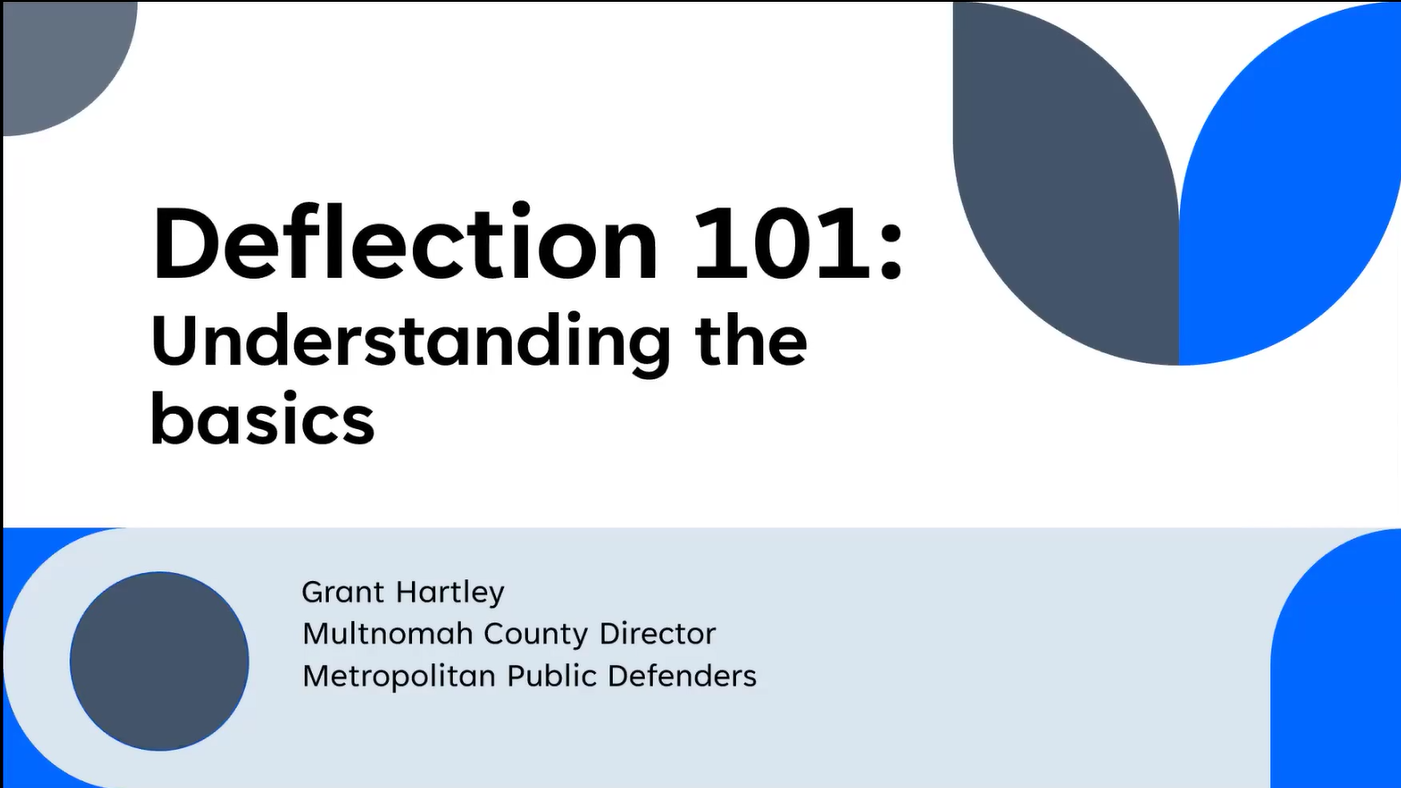
SESSION 1: APRIL 26, 2024
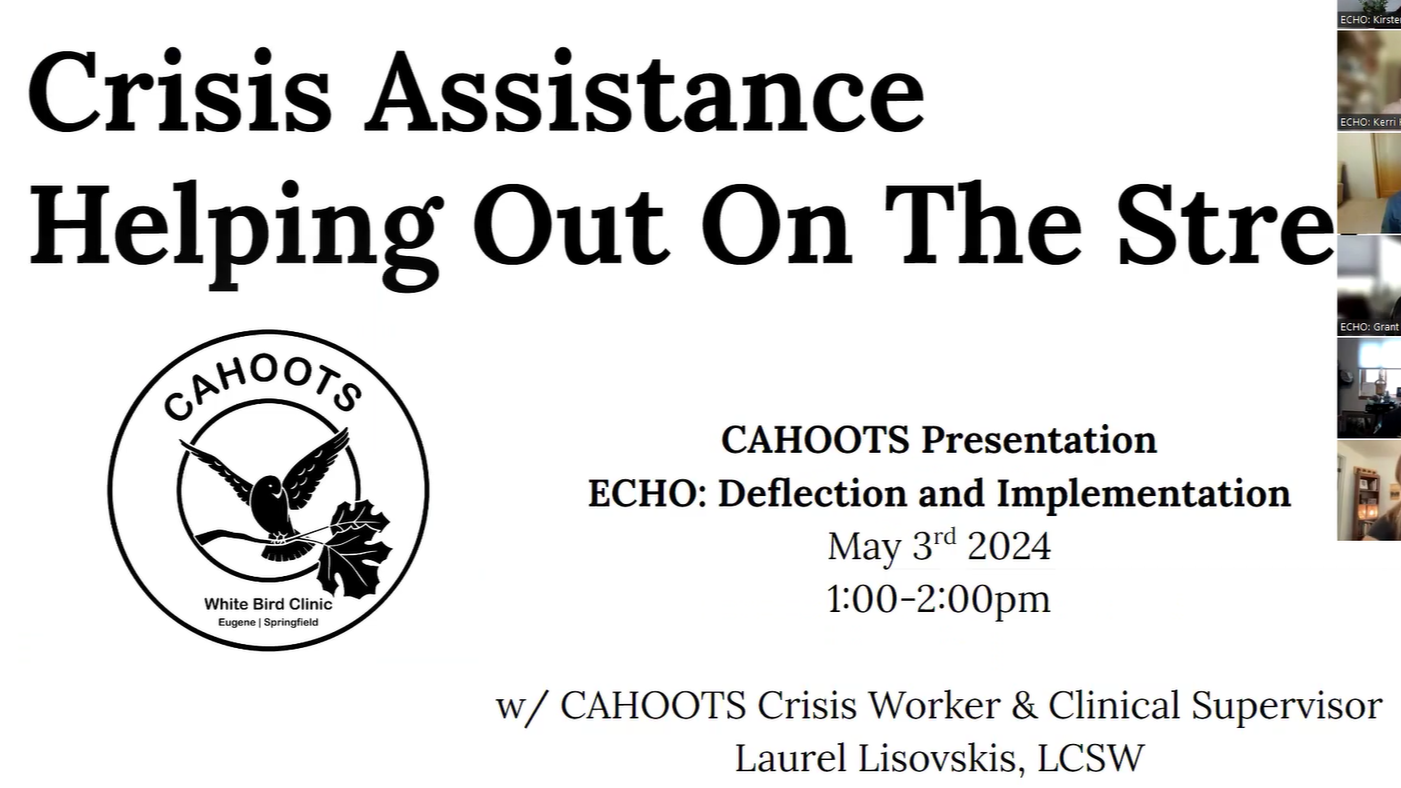
SESSION 2: MAY 3, 2024
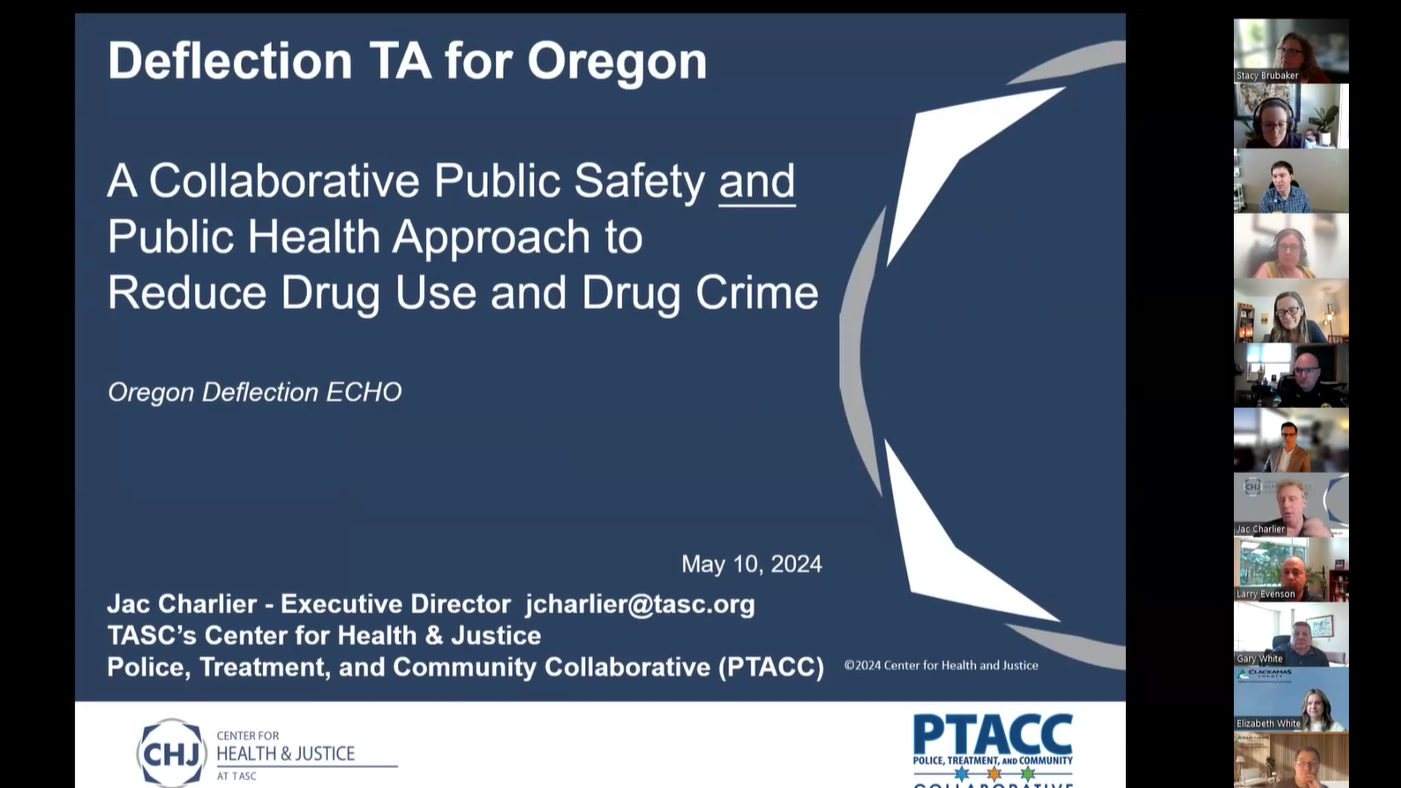
SESSION 3: MAY 10, 2024
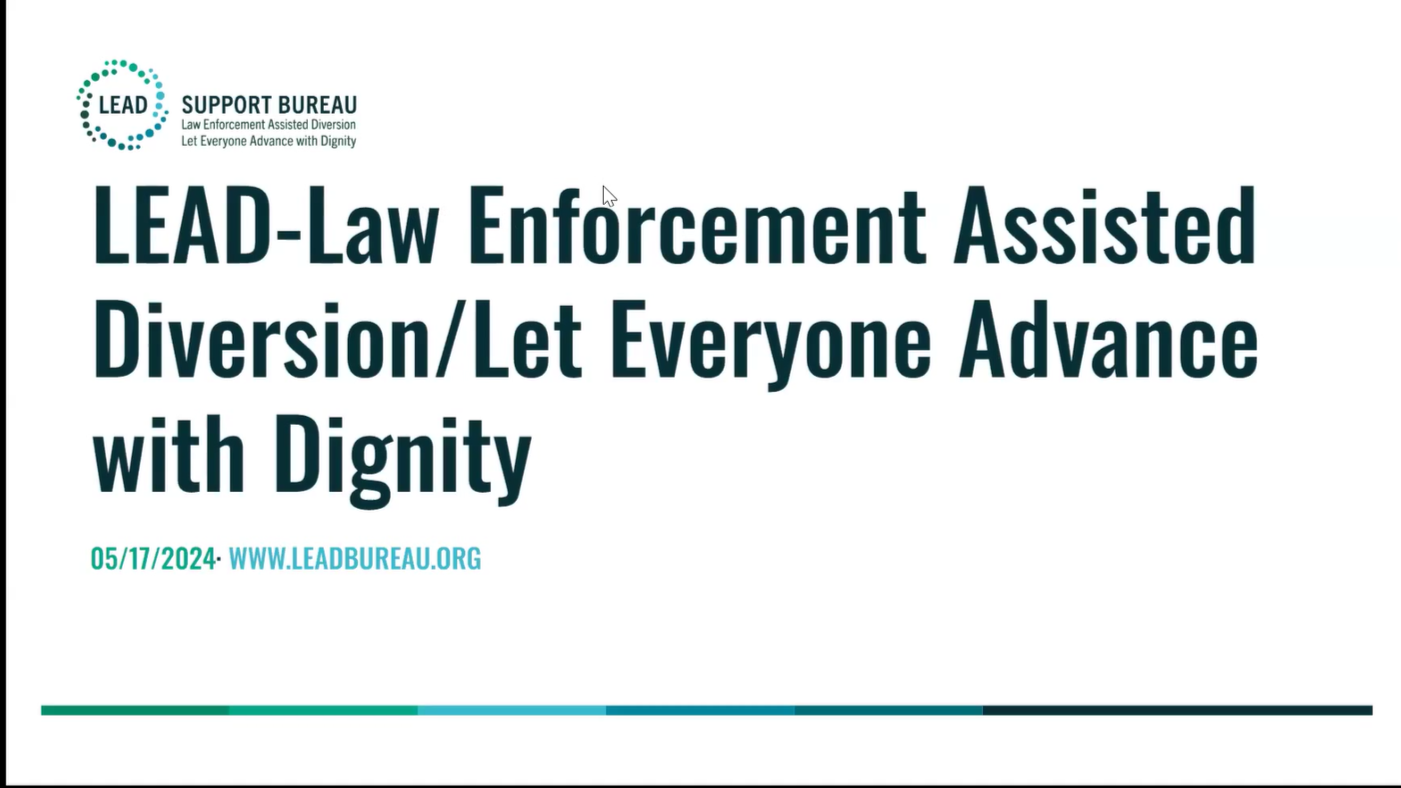
SESSION 4: MAY 17, 2024
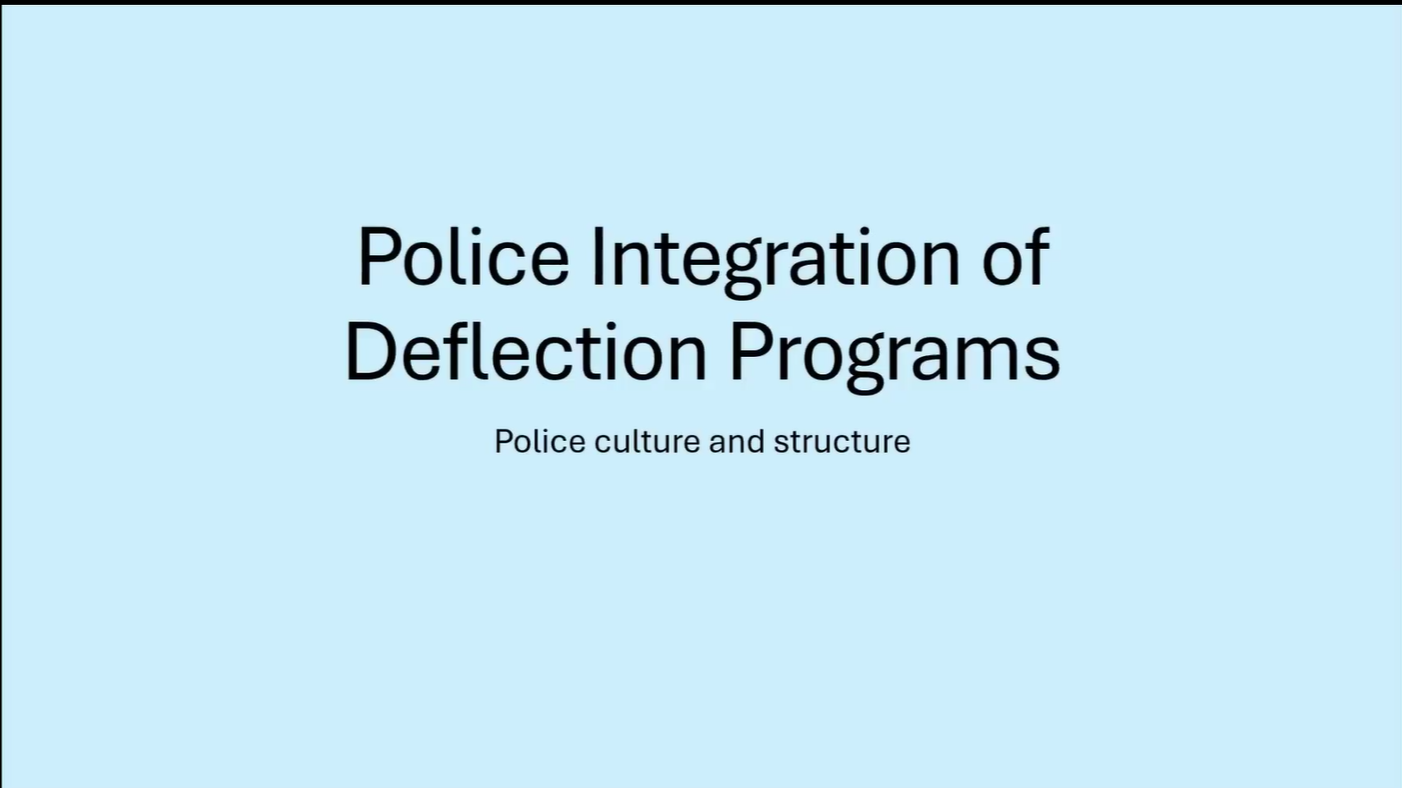
SESSION 5: MAY 31, 2024
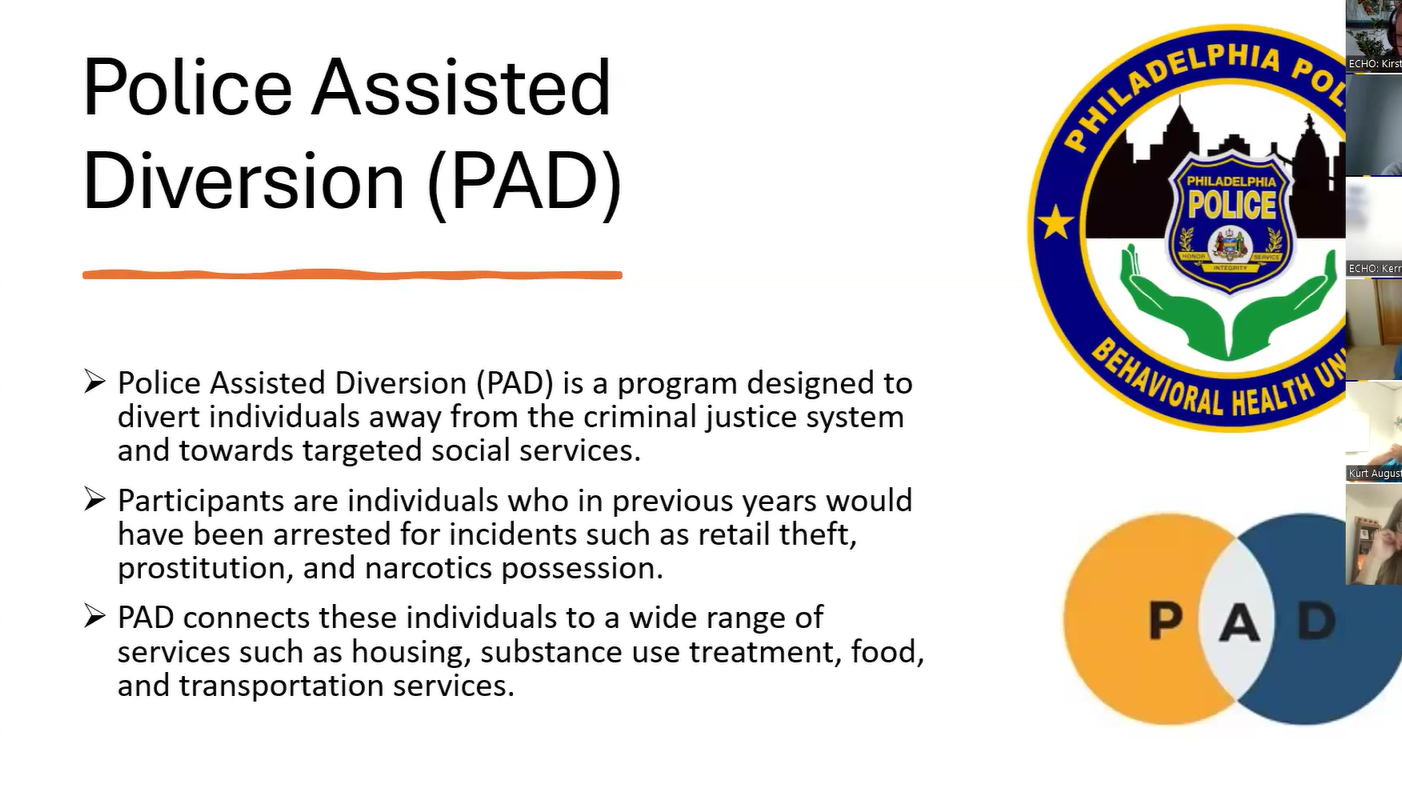
SESSION 6: June 14, 2024

SESSION 7: June 28, 2024
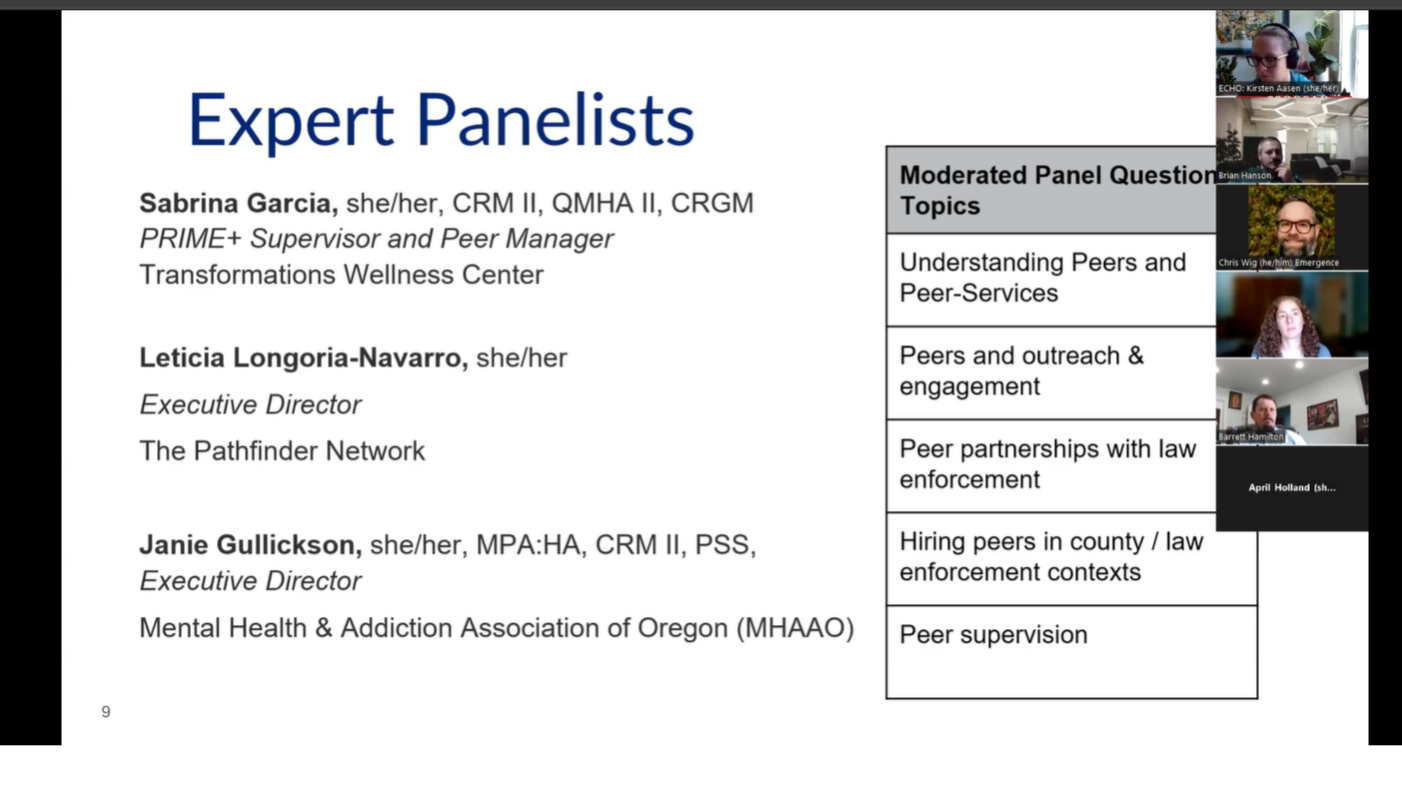
SESSION 8: July 12
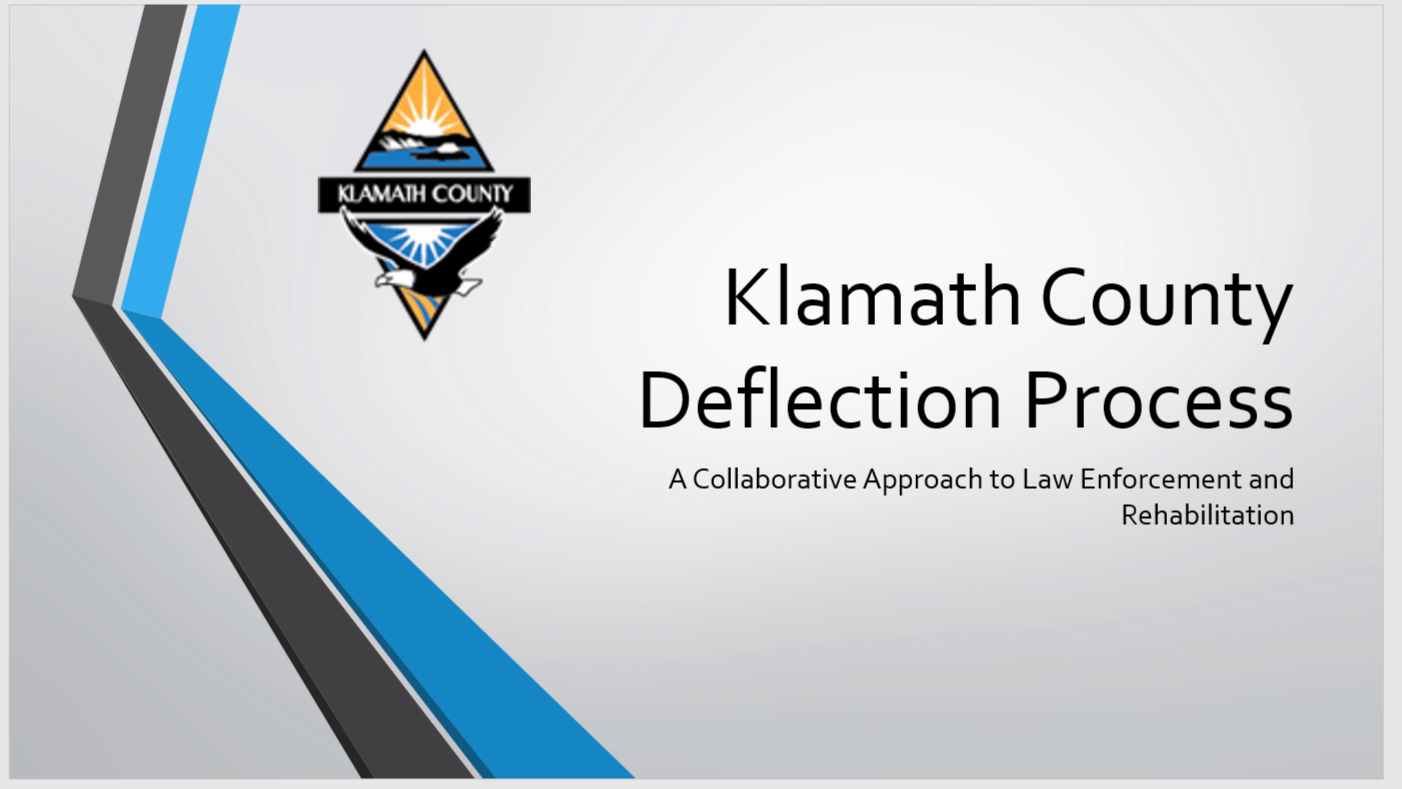
SESSION 9: July 26, 2024
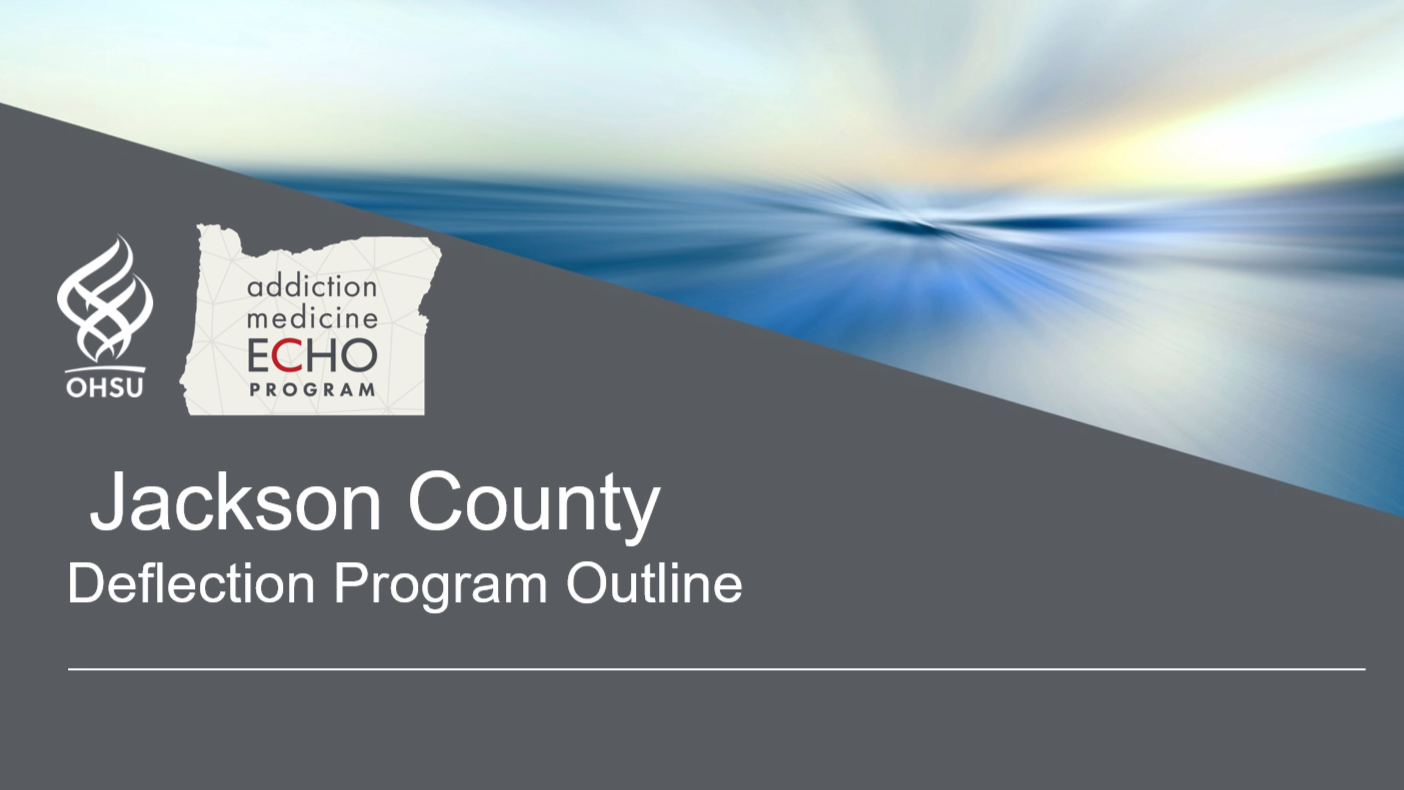
SESSION 10: August 9, 2024
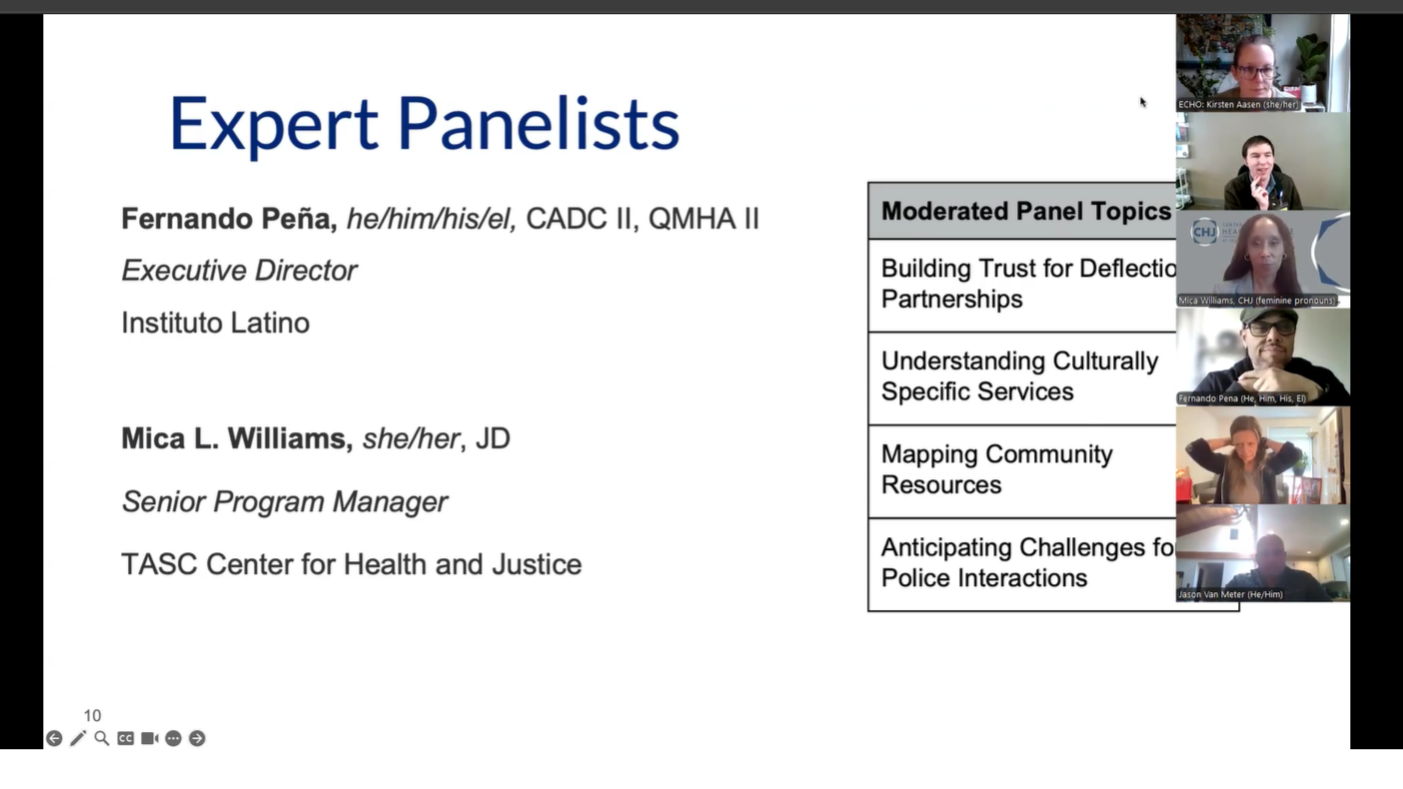
SESSION 11: August 23, 2024
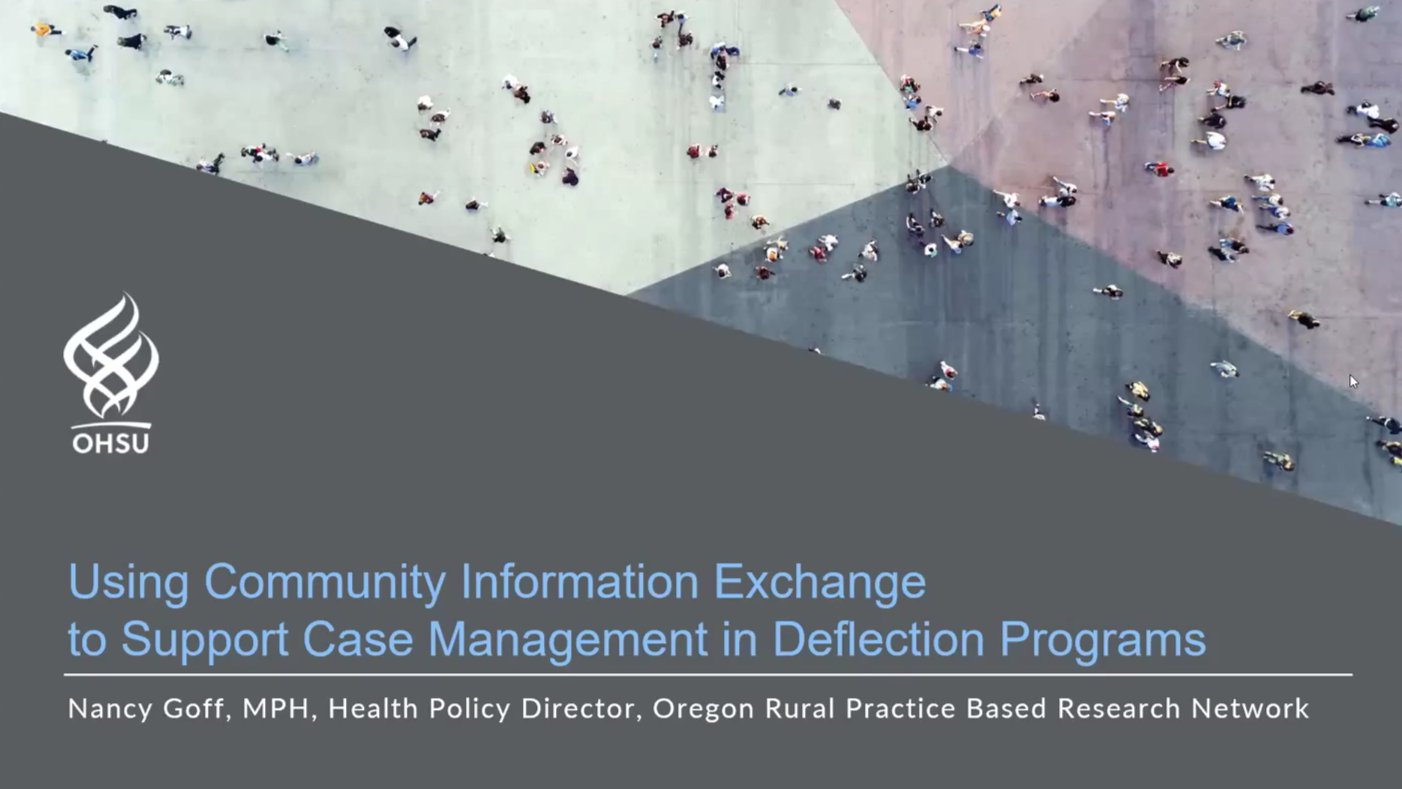
WEBINAR: September 17, 2024
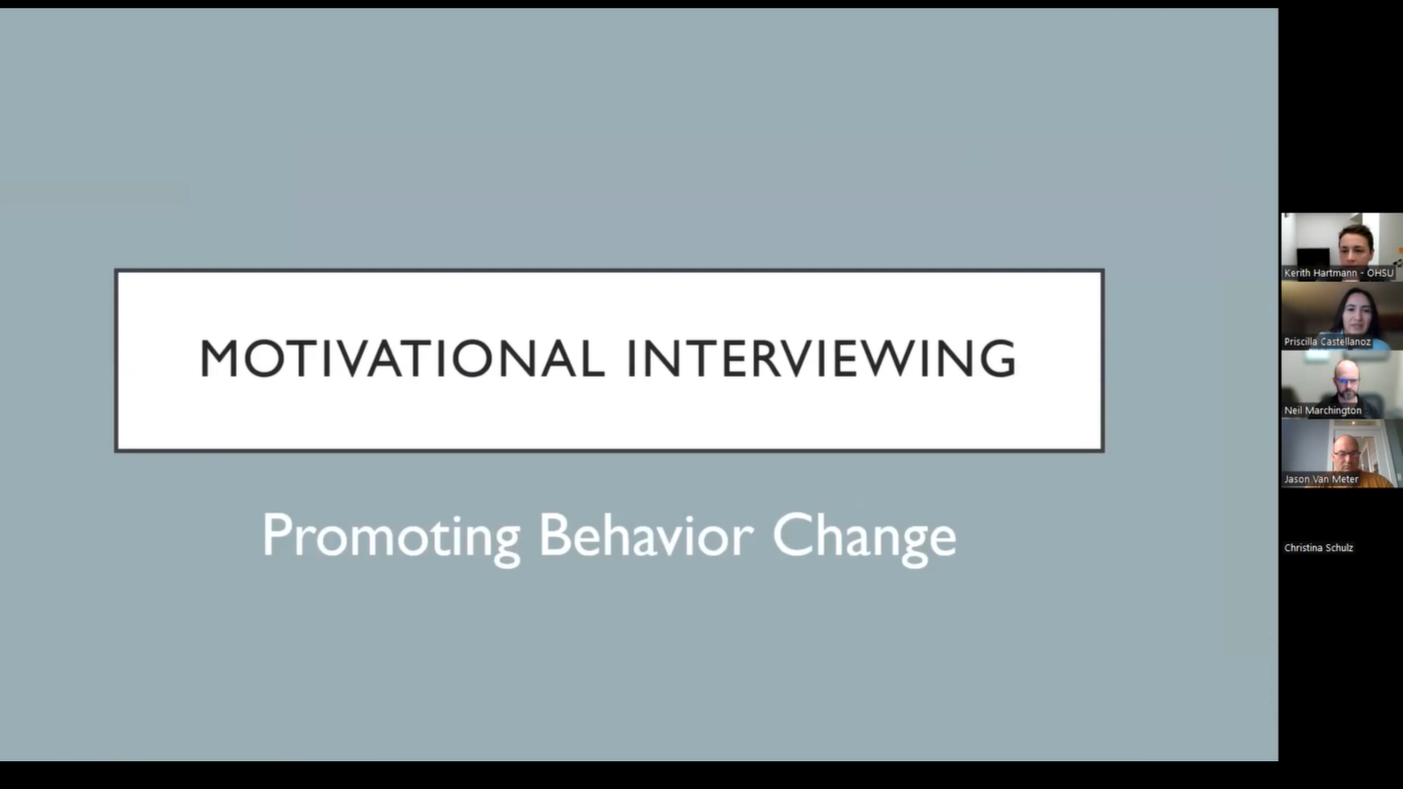
WEBINAR: October 22, 2024
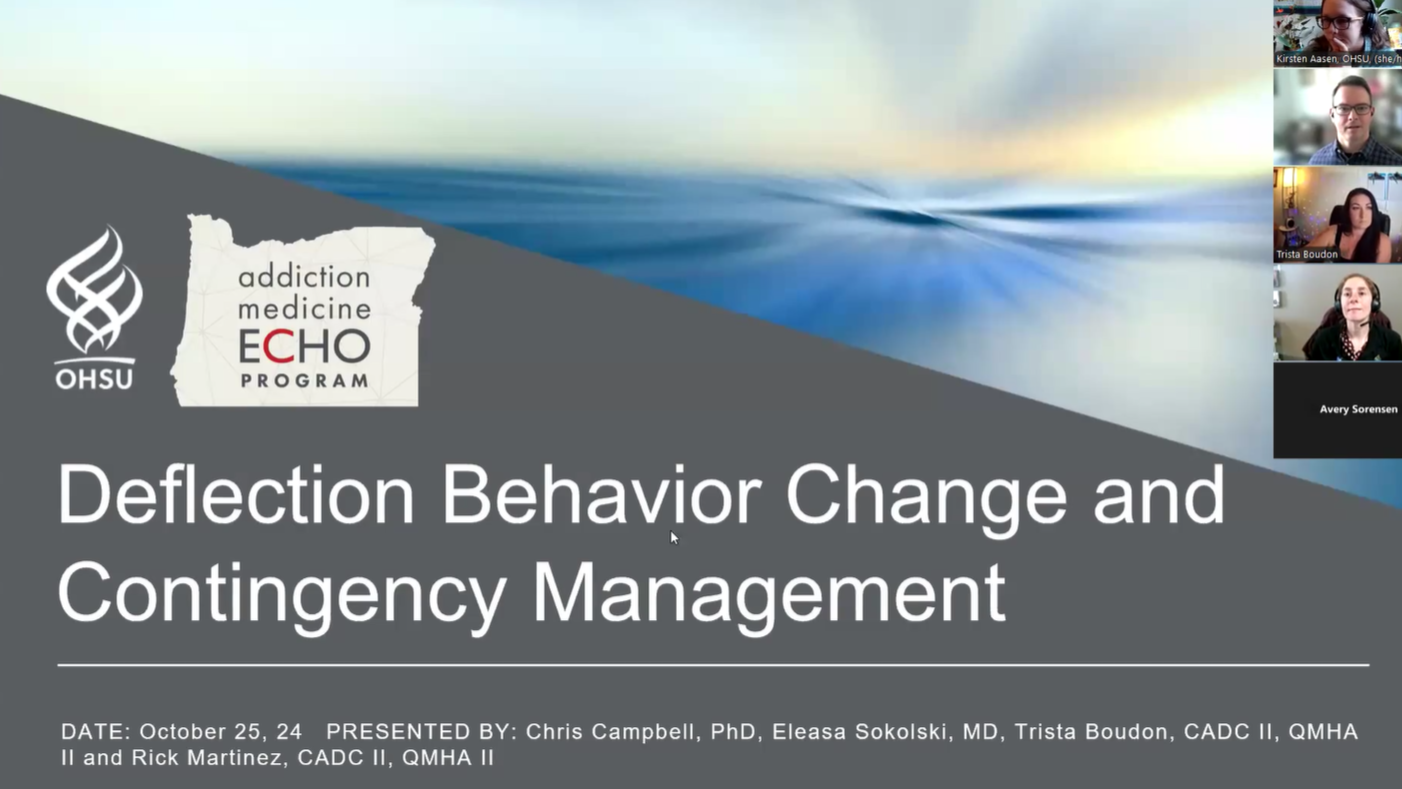
WEBINAR: October 25, 2024

WEBINAR: November 7, 2024
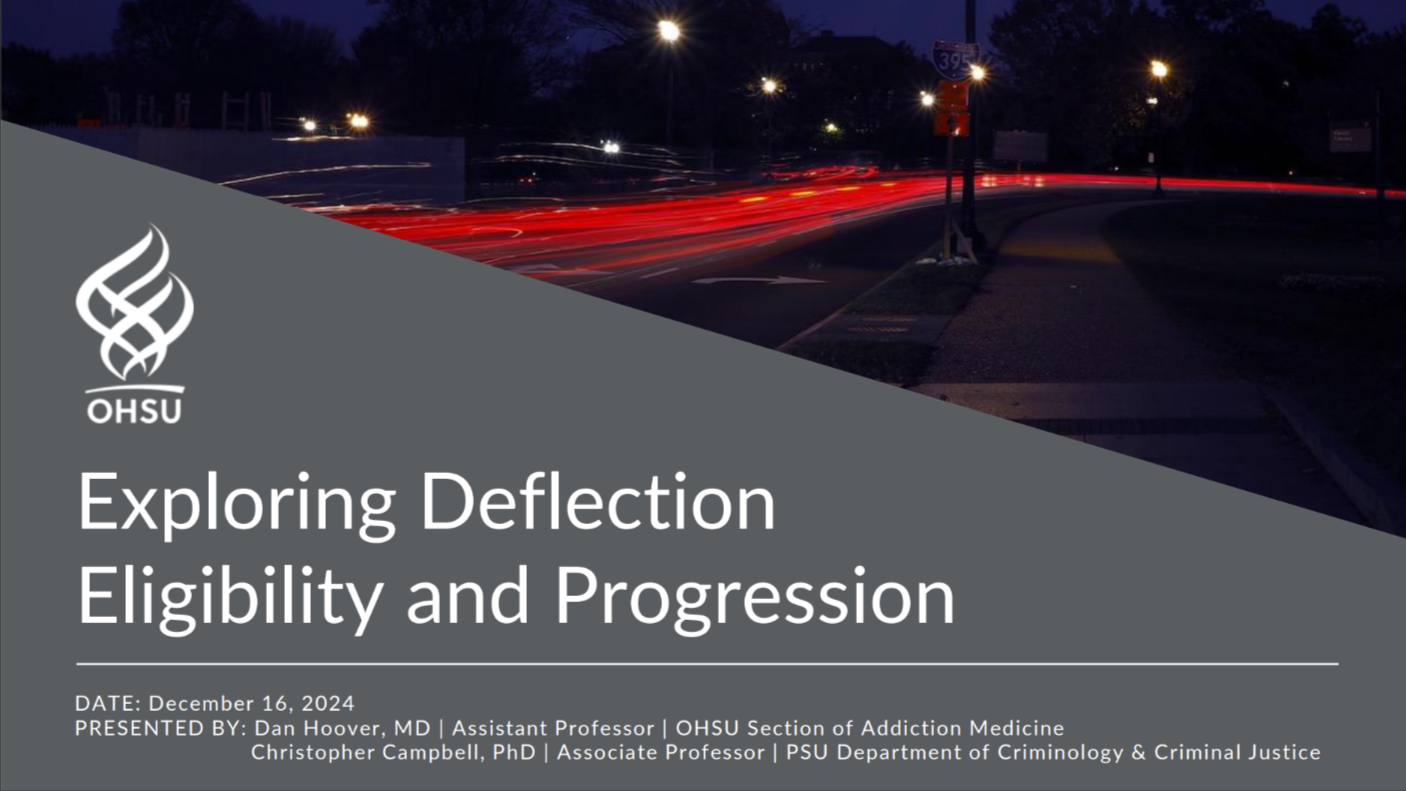
WEBINAR: December 16, 2024
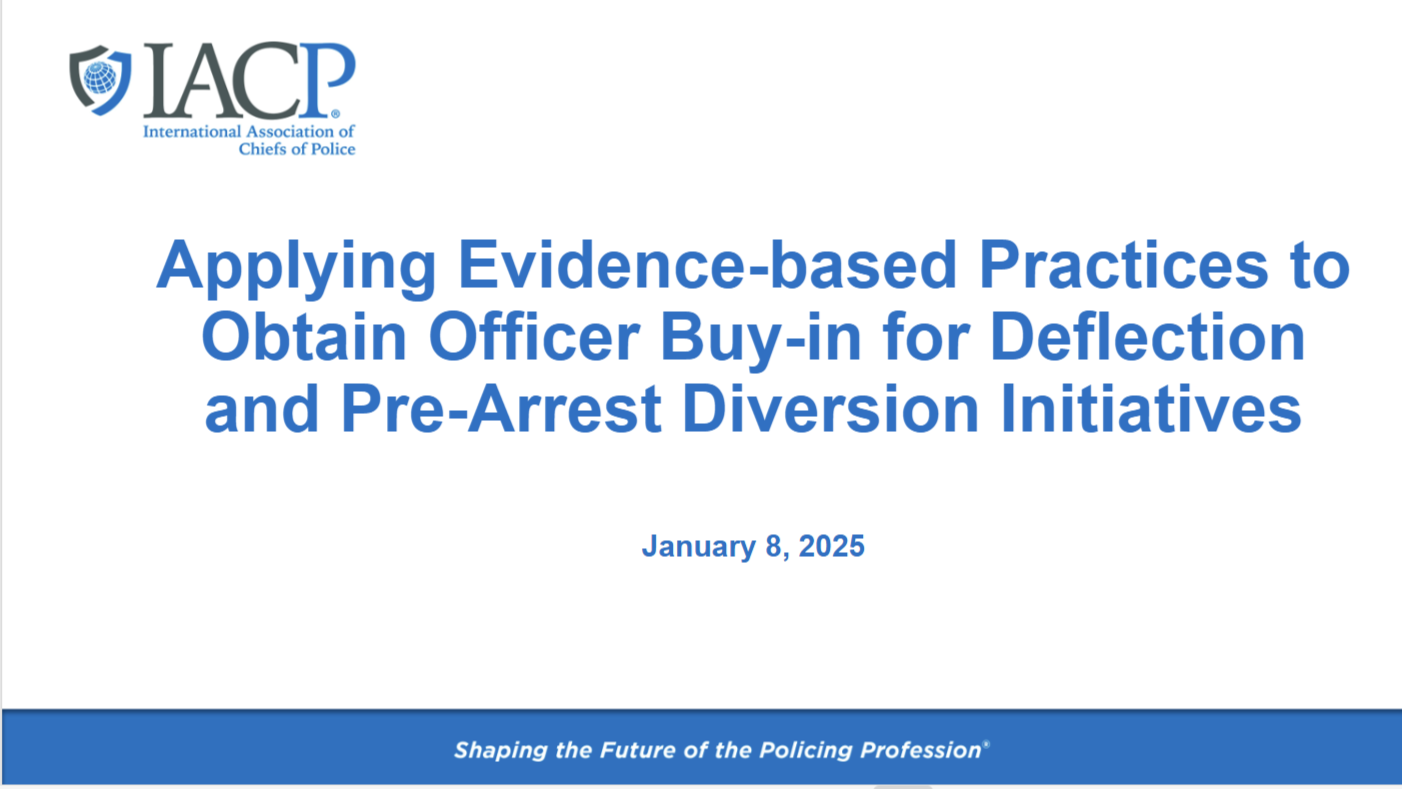
WEBINAR: January 8, 2025
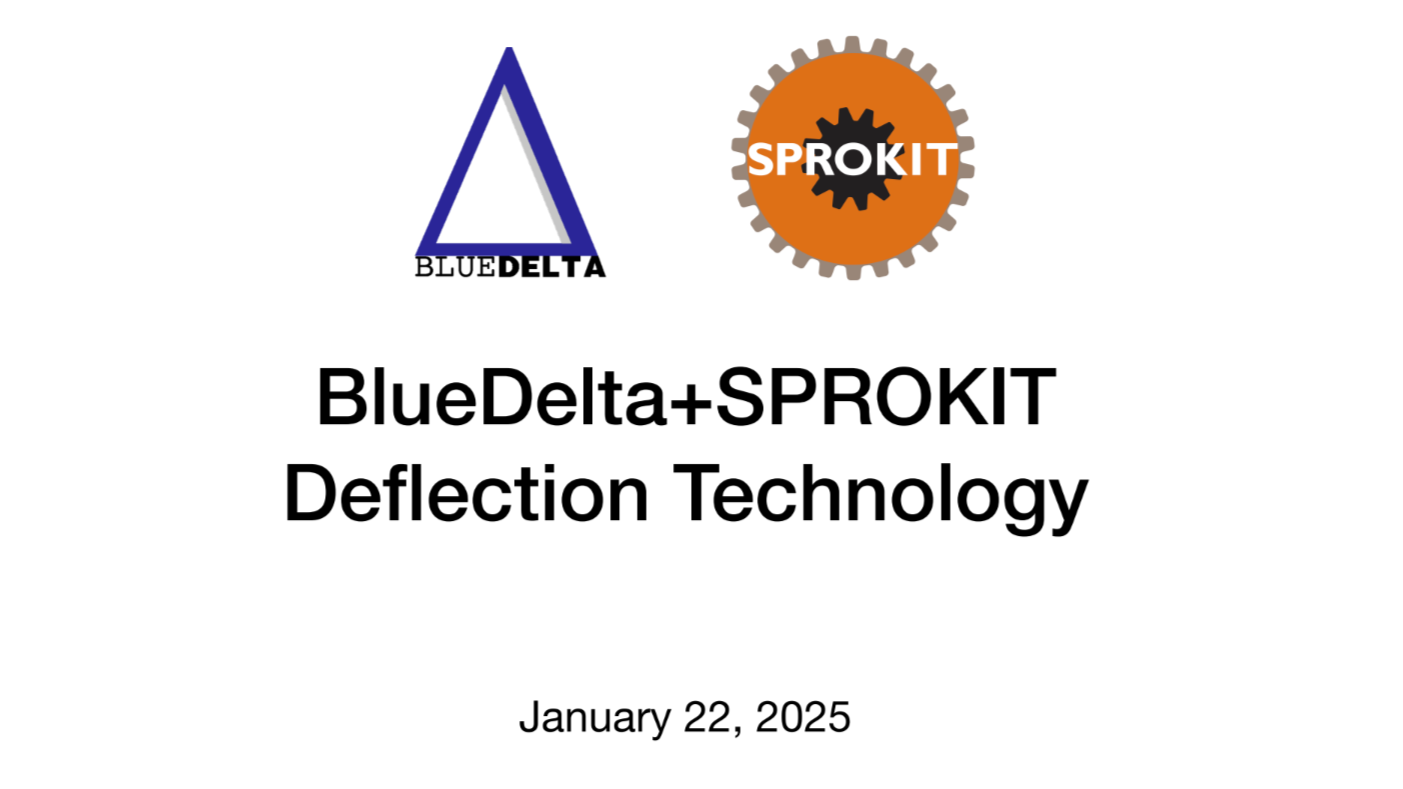
WEBINAR: January 22, 2025
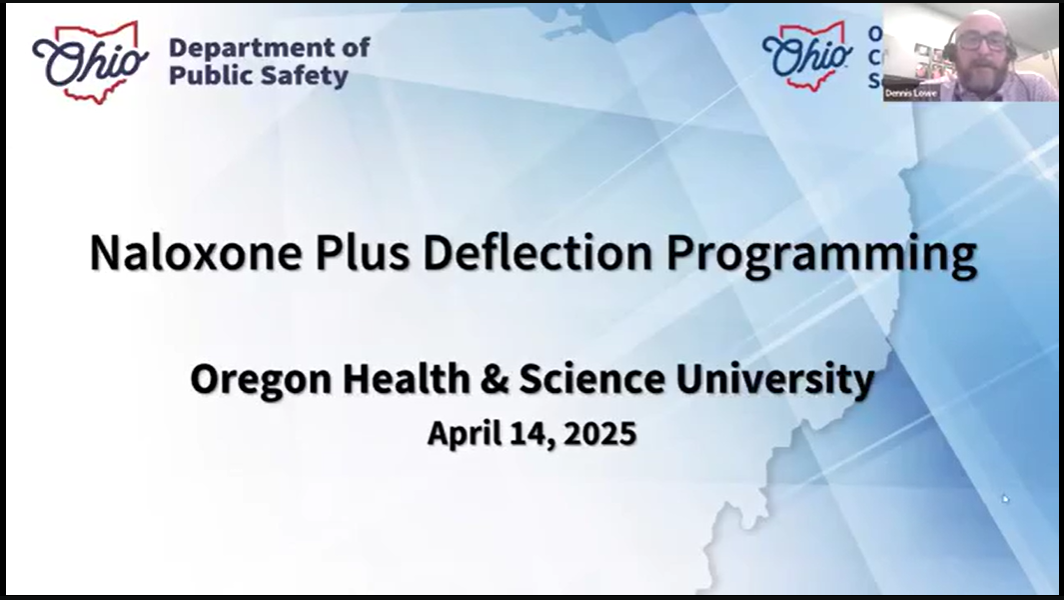
WEBINAR: April 14, 2025
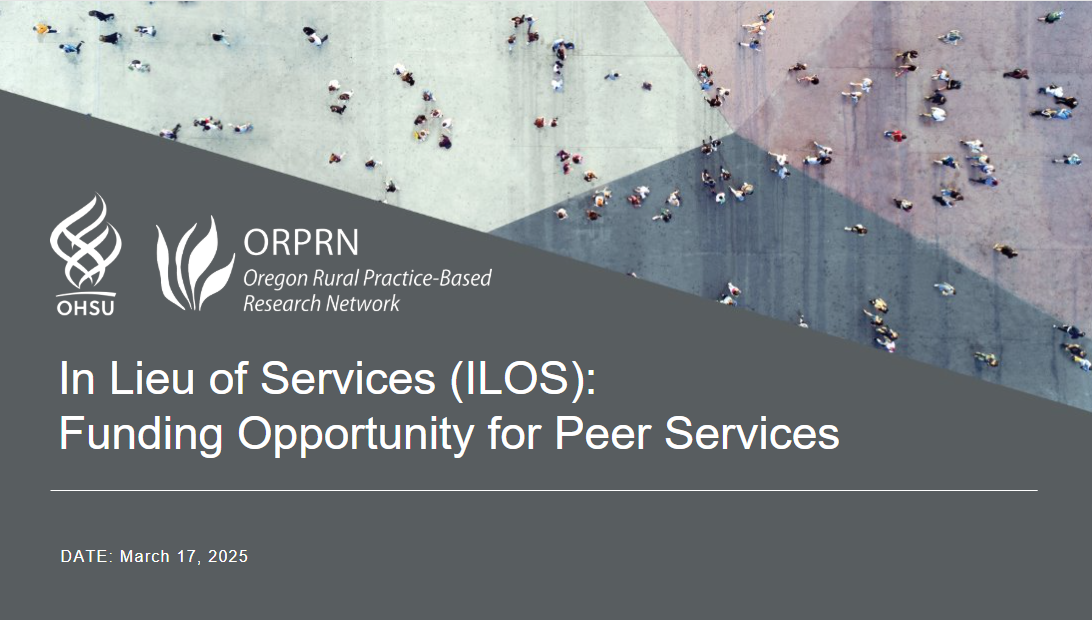
WEBINAR: March 17, 2025
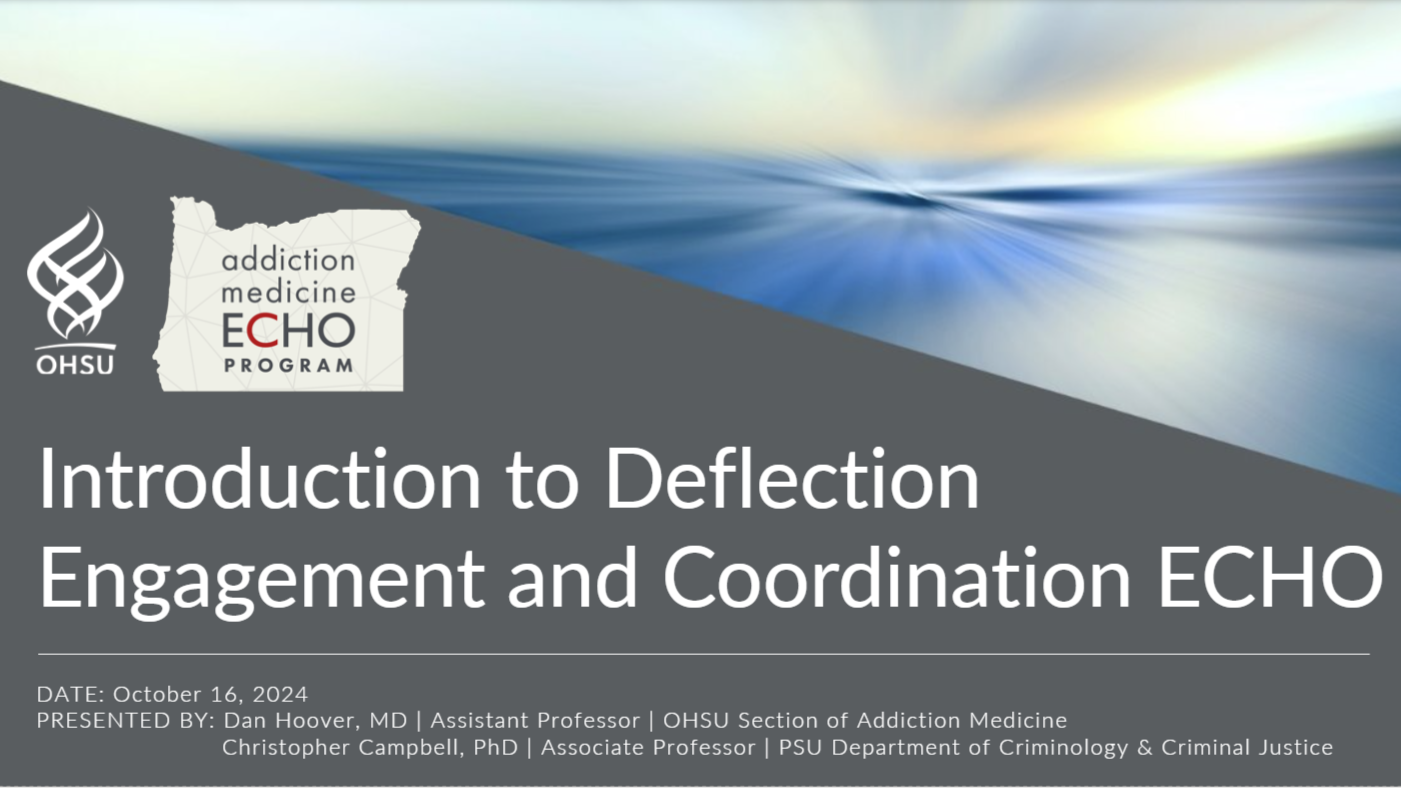
SESSION 1: October 16
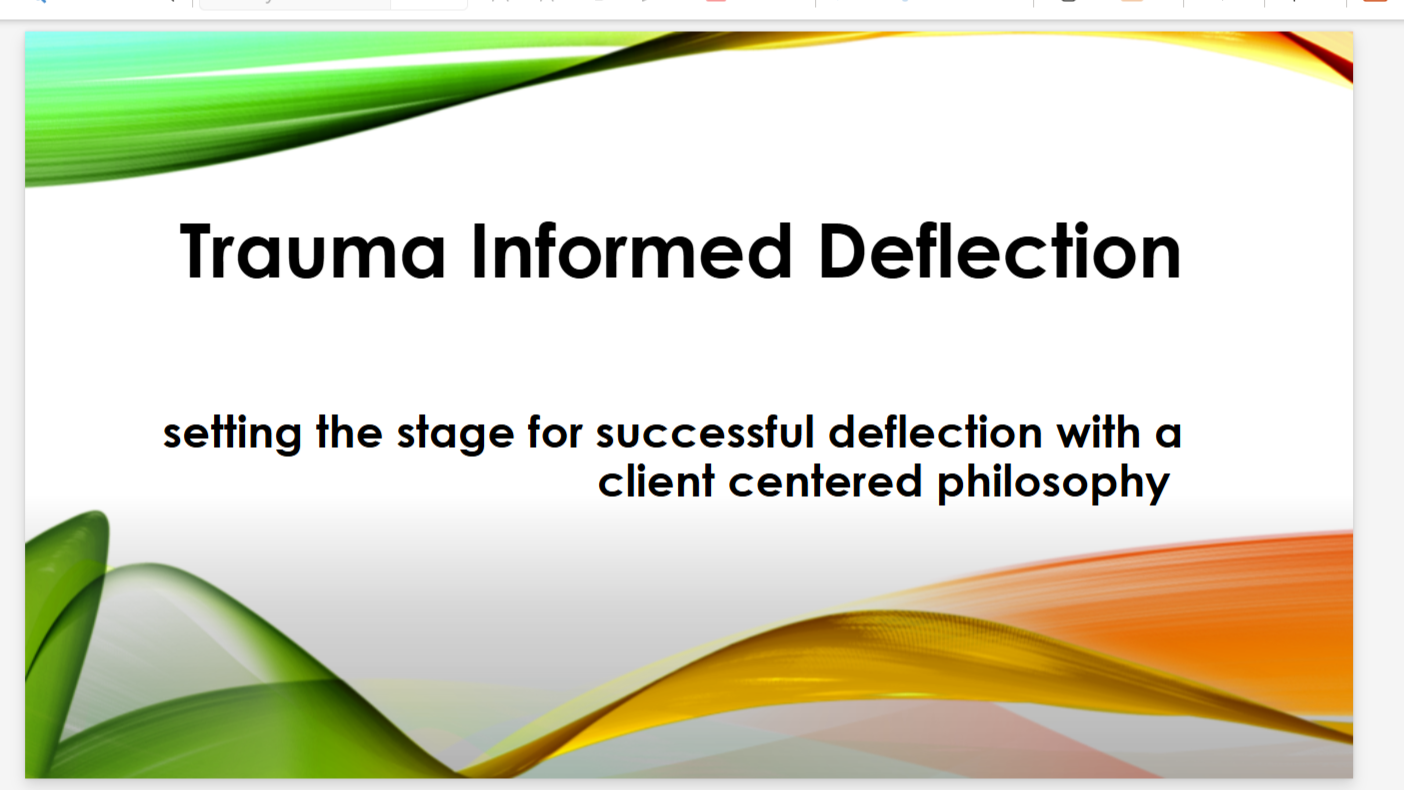
SESSION 2: November 6
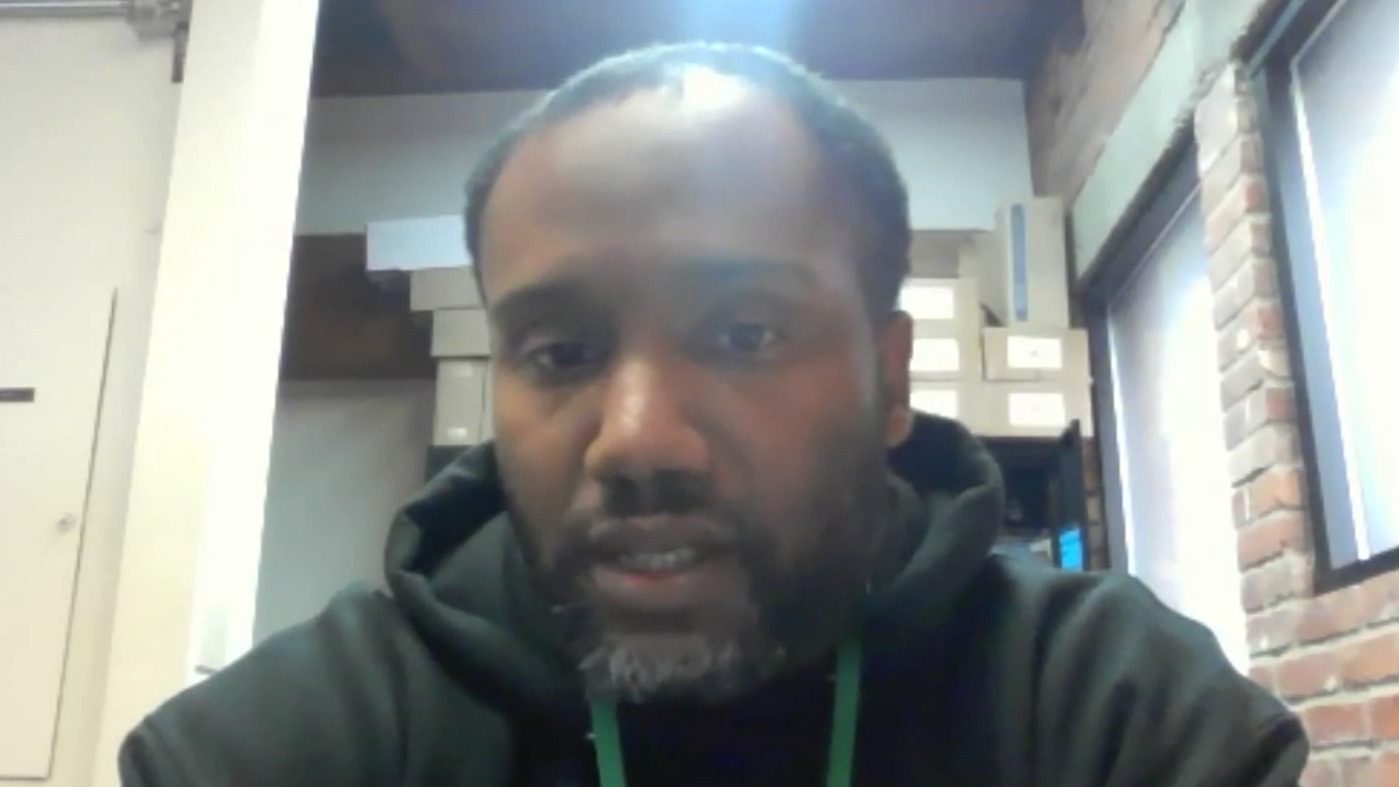
SESSION 3: The Deflection Hand Off
- PowerPoint: No PowerPoint
- Link to recording
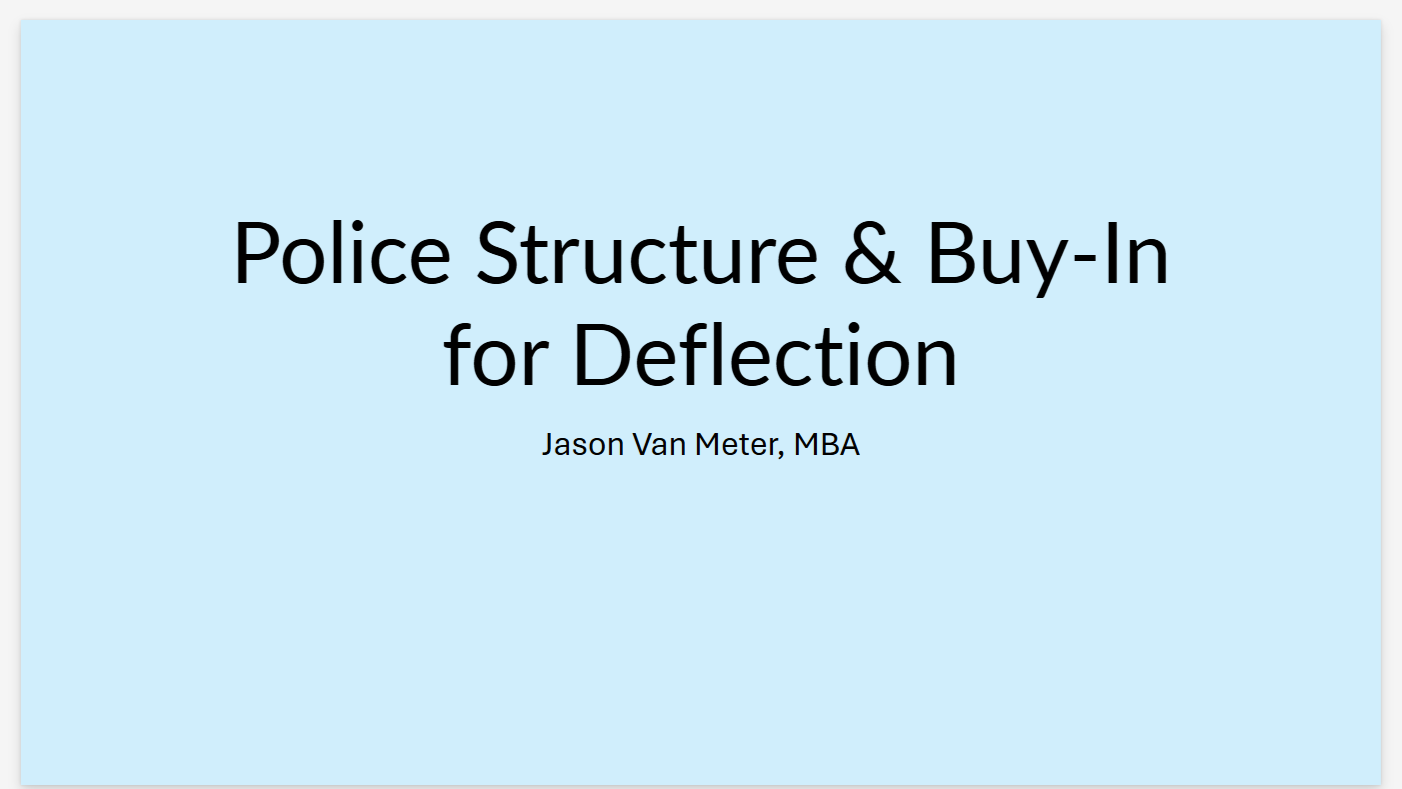
SESSION 4: December 4
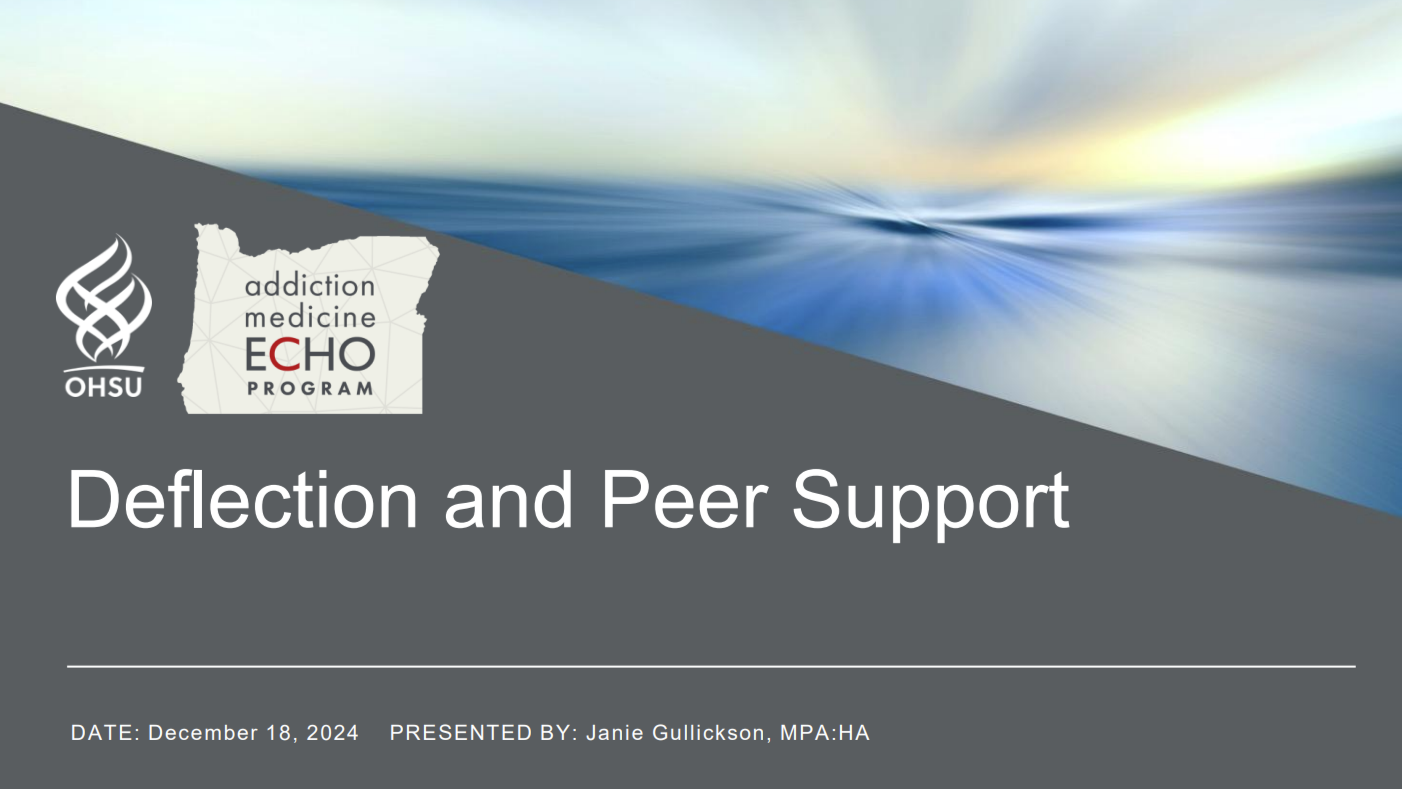
SESSION 5: December 18
SESSION 6: January 15
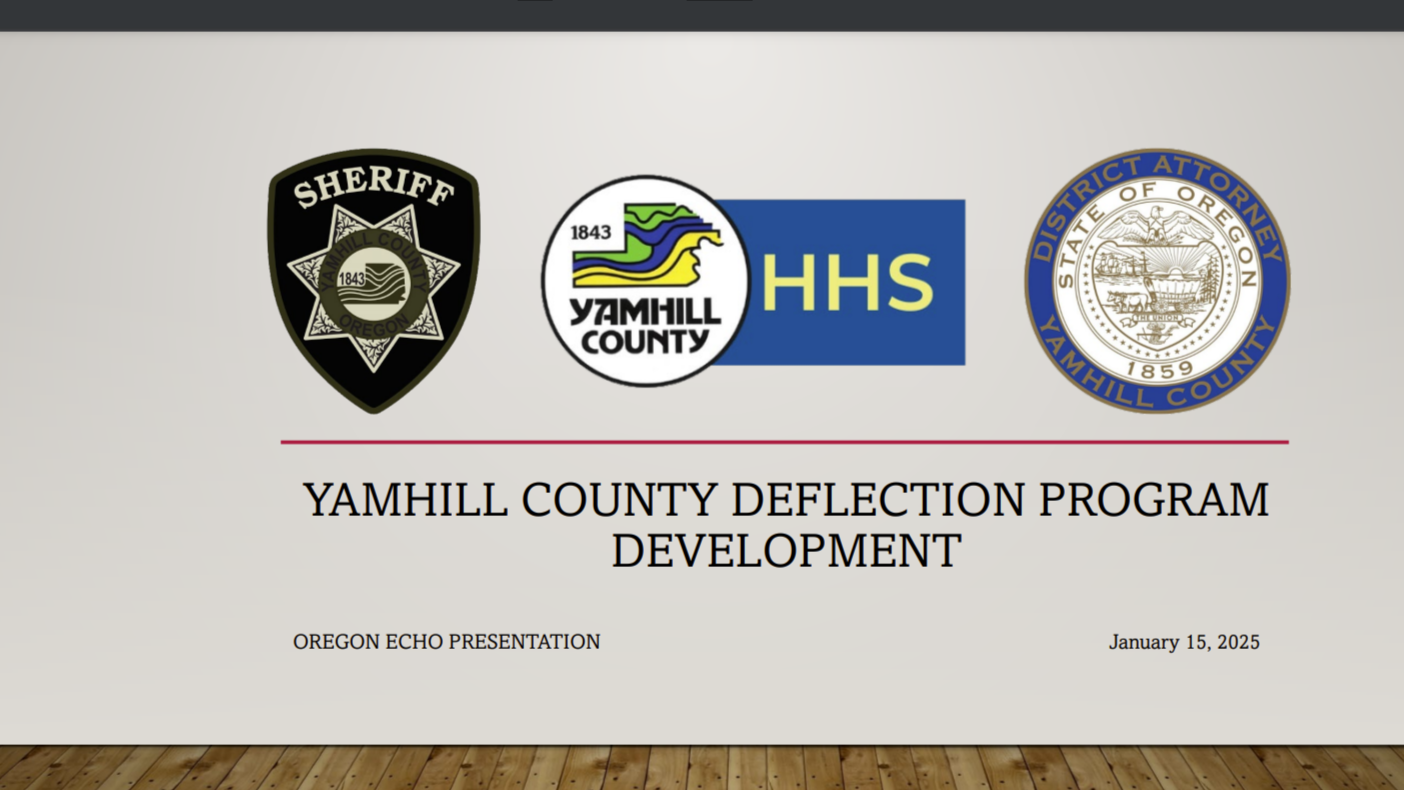
SESSION 7: February 19
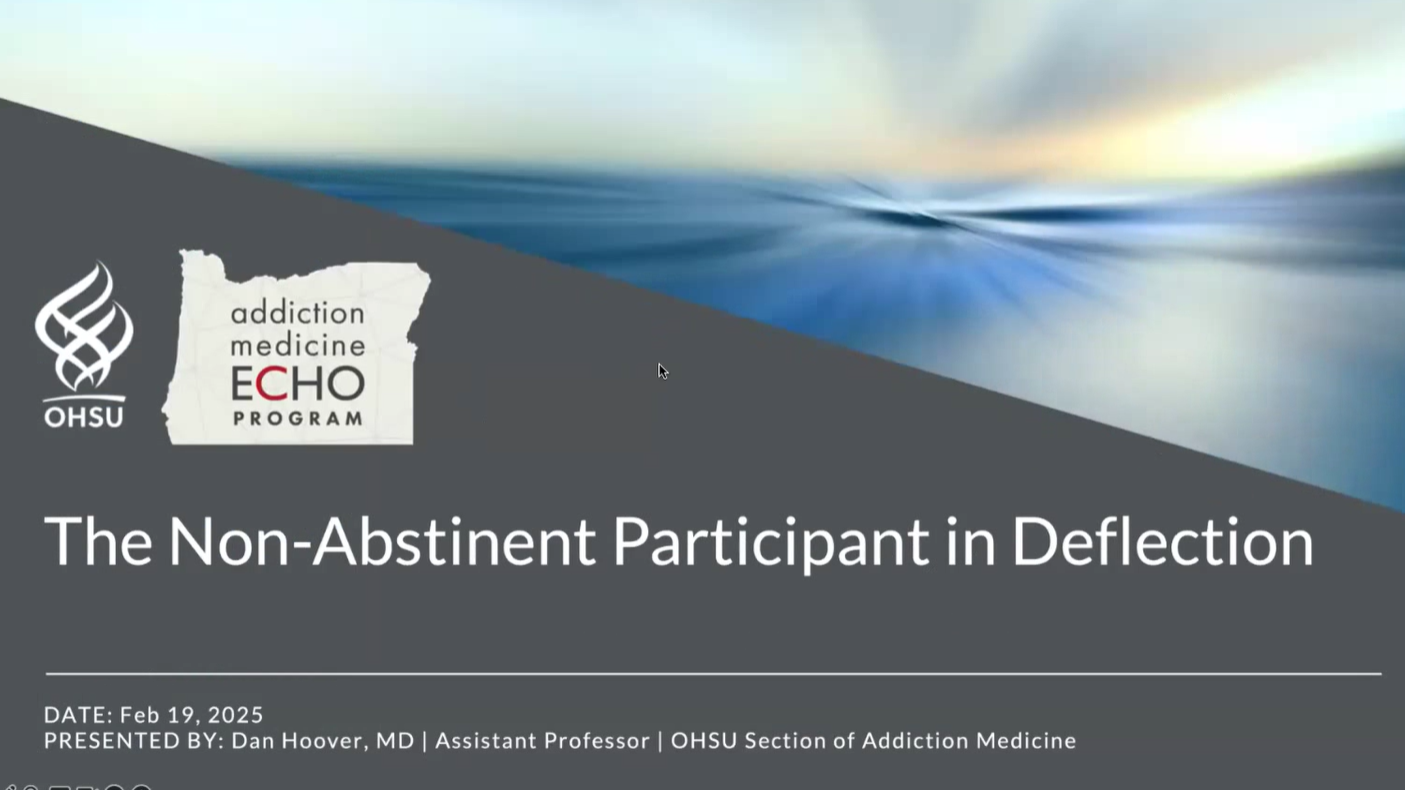
SESSION 8: February 19
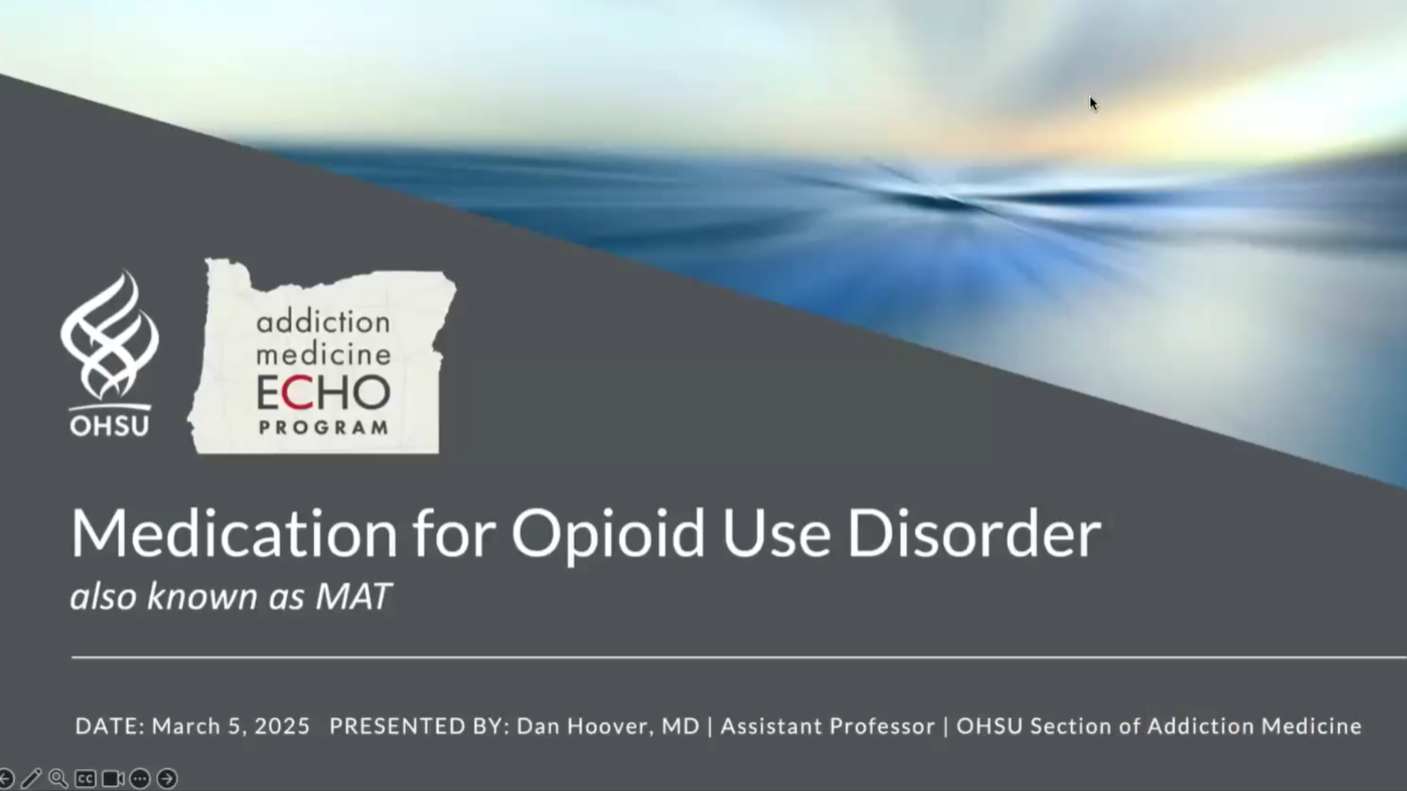
SESSION 9: March 5th
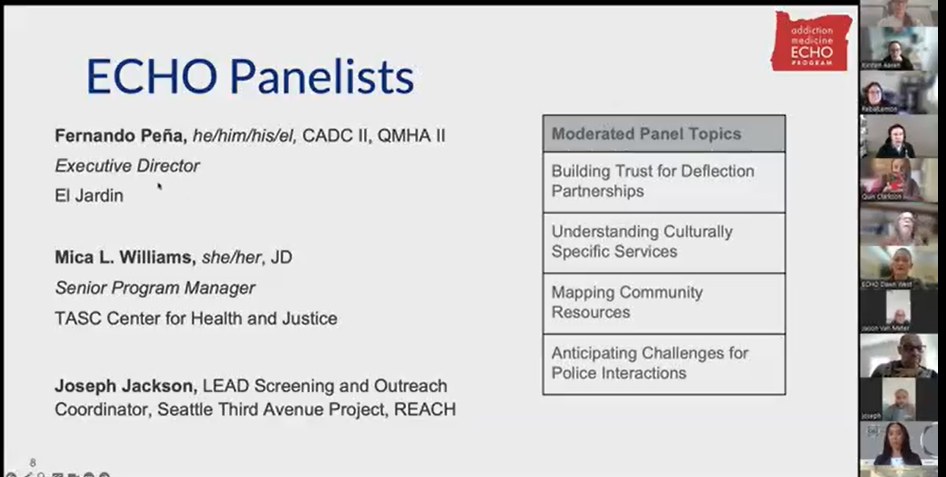
SESSION 10: March 10th

SESSION 11: April 2nd
What is Deflection?
- Deflection is the practice by which law enforcement, first responders, or community response, connect individuals to behavioral health treatment, social services, and recovery supports when issues of substance use are present. On September 1, 2024 possession of user level quantity of drug again became a misdemeanor level offense.
- Oregon’s House Bill 4002 (April 1, 2024) encourages law enforcement agencies to refer to new behavioral health deflection programs instead of citing/arresting an individual found in possession of controlled substances. Learn more about the bill here.
- Technical Assistance is funded by the Oregon Criminal Justice Commission (CJC) The CJC Behavioral Health Deflection Grant Program supports Oregon counties and federally recognized tribal governments in the creation and operation of their deflection programs. Learn more about the Oregon CJC Deflection Programs here.

Deflection
“Deflection serves as a community-centered practice by which law enforcement or other first responders make warm handoffs to community-based treatment and/or other services for people who have substance use or mental health disorders. Deflection presents an alternative to arresting people who might otherwise either enter the justice system or receive no assistance to address their needs.” — definition courtesy of the Justice Community Opioid Innovation Network.

DEFLECTION
- Centered in the community
- Deflecting away from justice system without having entered it
- Does not create an arrest record
- Behavioral health guided with criminal justice partnerships
DIVERSION
- Centered in the justice system
- Diverting out of justice system after having entered it
- Creates an arrest record
- Criminal justice guided with behavioral health partnerships
Basics of Deflection

A Decision Making Tool for Police Leaders:
Methods for deflecting people away from arrest and into services in the community
Critical Elements of Successful First Responder Diversion Programs:
5 pathways of first responder diversion outlined
ECOURSE: A Community Engagement Tool for First Responders:
This three module course is designed to provide a comprehensive understanding of effective communication strategies for deflection.
ECOURSE: First Responder Deflection Certification Course:
An eCourse from JCOIN that introduces deflection
Resource Library

- SAMHSA: Peer Support Workers for those in Recovery
- BJA: Five Steps to Effective Integration of Peer Recovery Support Services in the Criminal Justice System
- NASMHPD: Opening Career Pathways for Peers with Criminal Justice Backgrounds
- OHA: Peer Support Specialist
- Mental Health and Addiction Certification Board of Oregon
- Mental Health and Addiction Certification Board of Oregon Code of Conduct